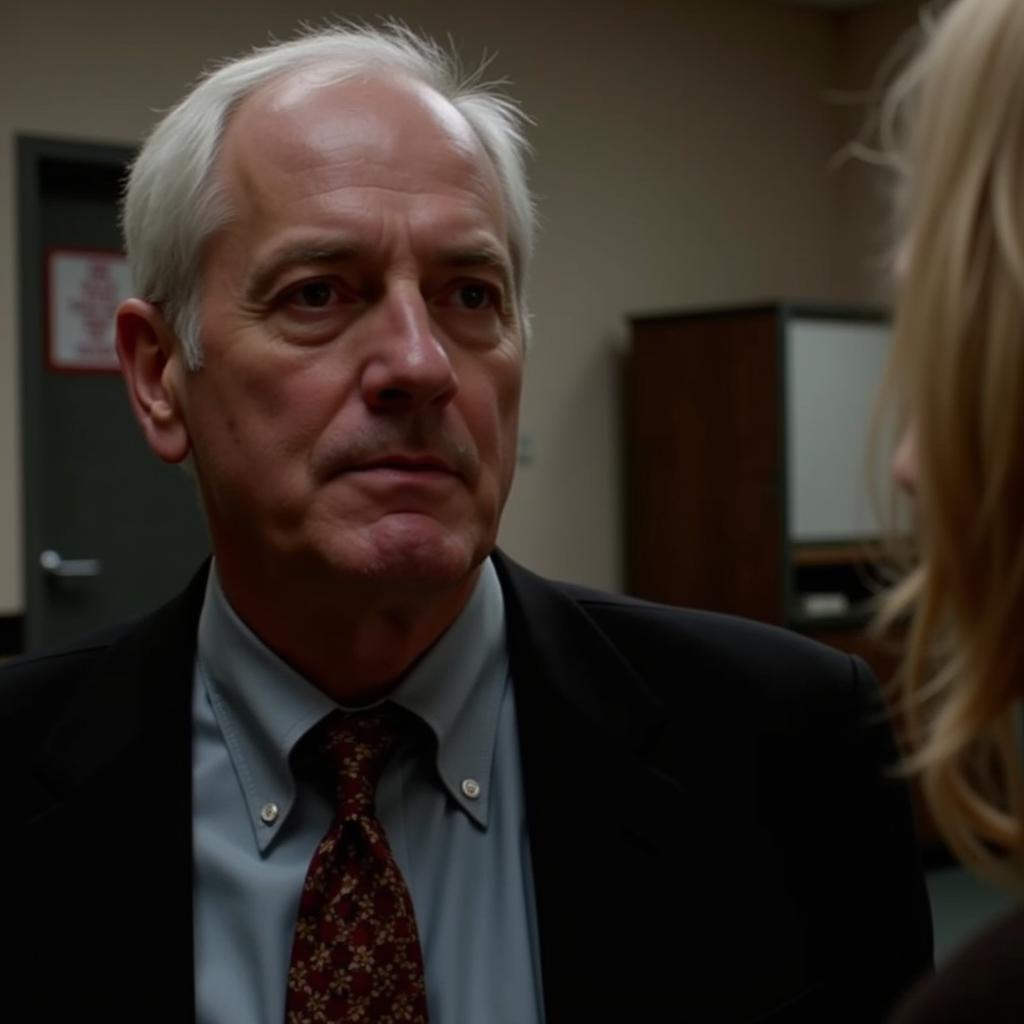The ending of Dead Poets Society is complex, leaving many pondering its meaning long after the credits roll. How Does Dead Poets Society End? It concludes not with a tidy resolution, but with an image of defiance and hope amidst loss and the pervasive pressures of conformity. This article will delve into the film’s final scenes, analyzing their significance and exploring the film’s enduring message.
Understanding the Final Moments of Dead Poets Society
The film culminates in the expulsion of Mr. Keating, the inspirational English teacher who encouraged his students to “seize the day” and embrace their individuality. This dismissal is a direct result of Neil Perry’s tragic suicide, an act driven by his father’s oppressive control and Neil’s own inability to reconcile his passions with societal expectations.  Neil Perry's Final Scene in Dead Poets Society
Neil Perry's Final Scene in Dead Poets Society
The climax sees Mr. Keating packing his belongings, seemingly defeated by the forces of tradition and authority that dominate Welton Academy. As he leaves the classroom, Todd Anderson, initially the shyest of the Dead Poets Society members, climbs onto his desk and calls out, “O Captain! My Captain!” character versus society This act of defiance, soon followed by other students, is a powerful testament to the impact Keating had on their lives. They choose to stand by their principles, even in the face of potential punishment.
The Significance of “O Captain! My Captain!”
The phrase “O Captain! My Captain!” is taken from Walt Whitman’s poem of the same name, which commemorates the assassinated Abraham Lincoln. In the context of the film, Mr. Keating becomes their “Captain,” leading them on a journey of self-discovery and intellectual awakening. The students’ defiant salute signifies their continued allegiance to his teachings, despite his physical departure. dead poets society tortured poets department This powerful moment encapsulates the film’s central themes of non-conformity and the pursuit of individual truth.
What Does the Ending of Dead Poets Society Mean?
The ending of Dead Poets Society is open to interpretation, offering a blend of hope and despair. While Neil’s death casts a long shadow, the students’ final act of rebellion suggests that Keating’s influence persists. Their defiance signifies the potential for change and the power of individual expression to challenge established norms.
Hope for the Future
Though the ending is tinged with sadness, it also carries a seed of hope. The students’ actions demonstrate that Keating’s lessons have taken root. robert sean leonard in dead poets society They are no longer the timid, conformist boys they were at the beginning of the term. They have learned to think for themselves, to question authority, and to embrace their passions. analysis dead poets society This suggests that even in a seemingly rigid and traditional environment, the seeds of change can be planted and nurtured.
The Price of Non-Conformity
The film also acknowledges the potential consequences of challenging the status quo. Neil’s tragic fate serves as a stark reminder of the risks involved in defying societal expectations. However, it also underscores the importance of fighting for what one believes in, even in the face of adversity.
How Does the Film’s Ending Resonate Today?
Decades after its release, Dead Poets Society continues to resonate with audiences. Its themes of individualism, non-conformity, and the importance of following one’s passions remain timeless and universally relevant.
Dr. Emily Carter, a renowned educator, notes: “The film’s ending is a powerful reminder that even small acts of defiance can have a profound impact. It encourages us to question the world around us and to strive for a more just and equitable society.”
dead poets society opening The film also speaks to the challenges young people face in navigating the pressures of societal expectations and parental influence.  Mr. Keating Leaving the Classroom
Mr. Keating Leaving the Classroom
In conclusion, the ending of Dead Poets Society is both poignant and powerful. It leaves us with a sense of loss, but also with a renewed appreciation for the importance of individuality, courage, and the pursuit of one’s dreams. How does Dead Poets Society end? It ends with a challenge to us all to “carpe diem” – to seize the day and make our lives extraordinary.
FAQ
- What happens to Mr. Keating after he leaves Welton?
- What is the significance of Neil’s suicide?
- How does Todd Anderson’s character evolve throughout the film?
- What is the meaning of “Carpe Diem”?
- What is the role of poetry in the film?
- How does the film explore the theme of conformity?
- What is the legacy of the Dead Poets Society?
For support, contact us 24/7 at Phone: 02043854663, Email: [email protected], or visit us at Khu 34, Bac Giang, 260000, Vietnam.